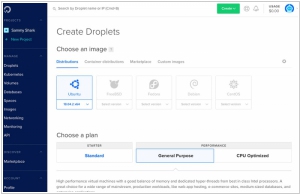DigitalOcean vs Rackspace
August 19, 2023 | Author: Michael Stromann
7
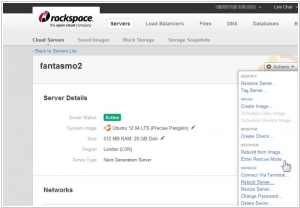
Rackspace Cloud offers four alternative hosting products: Cloud Servers for on-demand computing power; Cloud Sites for robust web hosting; Cloud Load Balancers for easy, on-demand load balancing and high availability; and Cloud Files for elastic online file storage and CDN.Rackspace Cloud hosting customers never need to worry about buying new hardware to meet increasing traffic demands or huge traffic spikes.
DigitalOcean and Rackspace are two well-known cloud service providers, each offering unique features and advantages for businesses and developers. DigitalOcean is recognized for its simplicity and ease of use, making it an ideal choice for small to medium-sized businesses and developers looking for a straightforward cloud platform. It offers a range of virtual servers, called "Droplets," along with additional services like managed databases and object storage. DigitalOcean's user-friendly interface and competitive pricing appeal to startups and individuals seeking a hassle-free cloud computing experience. On the other hand, Rackspace is known for its managed cloud services and support. It caters to larger enterprises and businesses requiring more comprehensive and customized solutions. Rackspace offers a variety of cloud services, including public, private, and hybrid cloud options, along with managed services to help organizations with complex cloud deployments and ongoing management.
See also: Top 10 Public Cloud Platforms
See also: Top 10 Public Cloud Platforms
DigitalOcean vs Rackspace in our news:
2020. Cloud for developers DigitalOcean raises $50M
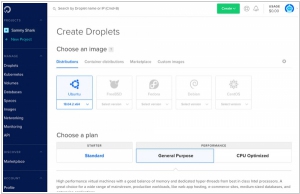
DigitalOcean, a leading cloud provider for developing modern applications, has announced the successful closure of a $50 million Series C funding round. The funding was led by Access Industries, with participation from Andreessen Horowitz. DigitalOcean Cloud offers simplified app creation capabilities for a wide range of developers, including individuals, startups, and small to medium-sized businesses. With its infrastructure and platform-as-a-service (IaaS and PaaS) solutions, DigitalOcean provides a seamless experience that eliminates the need for extensive DevOps expertise. This empowers developers to dedicate their efforts towards building innovative software. Following this funding round, the company's valuation has reached $1.15 billion, indicating a significant increase from its pre-money valuation of $1.1 billion.
2020. Cloud infrastructure provider DigitalOcean raises $100M
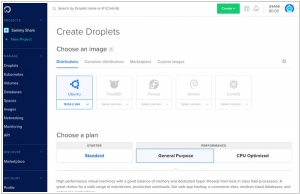
DigitalOcean, a cloud infrastructure provider with a focus on smaller businesses and younger companies, has announced today that it successfully raised $100 million. Unlike traditional sales-driven models, DigitalOcean operates as a self-serve SaaS business, allowing users to easily get started without requiring assistance. This approach avoids the costly and time-consuming sales cycles. However, while the convenience of self-signup appeals to small companies, this acquisition method often leads to high customer turnover. To address this, DigitalOcean is dedicated to establishing a niche in SMB and developer-oriented cloud infrastructure, maintaining favorable economics through low customer acquisition costs and self-service revenue generation. The profits generated from this approach sustain the company's growth, enabling it to invest in itself through debt rather than equity. Overall, this unexpected news adds an exciting element to the day.
2018. Rackspace acquired Salesforce specialist RelationEdge
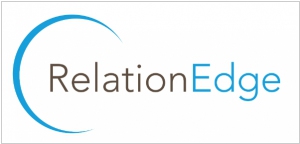
Rackspace has completed the acquisition of RelationEdge, a recognized partner specializing in Salesforce implementation. While Rackspace has established itself as a prominent provider of hosting and managed cloud services, the company is determined to broaden its portfolio and incorporate managed services for SaaS applications. This strategic move follows Rackspace's previous acquisition of TriCore, a company operating in the enterprise application management sector, signaling the company's commitment to expanding its capabilities in this domain. Through the acquisition of RelationEdge, Rackspace aims to further enhance its offerings and strengthen its position in the market.
2017. Rackspace acquires multi-platform hybrid IT management solution Datapipe
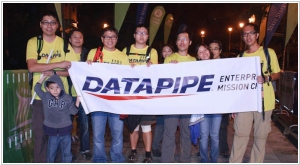
Rackspace has announced its acquisition of Datapipe, a major competitor in the managed public and private cloud services industry. While Datapipe has achieved significant success with enterprise and government clients, Rackspace has traditionally focused on the mid-market segment. Notably, the two companies have not consistently competed for the same deals, and their product portfolios differ substantially. Rackspace acknowledges that it could have attained similar technical capabilities through multiple smaller acquisitions, but this approach would have been more time-consuming and may not have granted Rackspace access to Datapipe's current customer base. Among Datapipe's customers are numerous large public-sector organizations, including the U.S. departments of defense, energy, and justice, as well as the U.K.'s cabinet office, ministry of justice, and department of transportation.
2016. Rackspace added cloud optimization platform to its private cloud
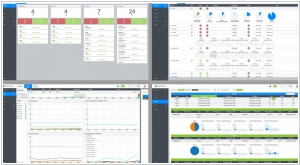
In a collaboration with AppFormix, Rackspace has introduced cloud monitoring and performance optimization tools to its private OpenStack cloud. This partnership grants Rackspace customers the ability to utilize AppFormix's real-time monitoring, analytics, and optimization tools. Rackspace's engineers will also leverage these tools to efficiently manage the cloud services for their customers. This marks a somewhat atypical move for Rackspace, as the company typically develops its own tools for managing the technical aspects of its cloud business. Notably, Rackspace played a pivotal role as a founding member of the OpenStack project, alongside NASA.
2014. Rackspace will sell and manage Google Apps
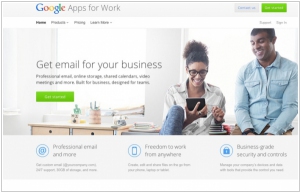
Cloud provider Rackspace has expanded its offerings to include the sale and support of Google Apps for Work to business customers, alongside its existing reselling and support of hosted Exchange and Sharepoint. Google Apps for Work, available directly, starts at $5 per user per month with 30 GB of online storage, while an unlimited storage version costs $10 per user per month. Rackspace will charge $10 per user per month for the basic package and $15 per month for unlimited storage. The additional $5 provides access to Rackspace's renowned "fanatical support," encompassing assistance with provisioning, security configuration, device management, migration issues, and account management. By offering Google Apps for Work, Rackspace aims to cater to the diverse needs of its business customers and provide comprehensive support for their collaboration and productivity tools.
2014. Rackspace guarantees 99.99% uptime of private cloud
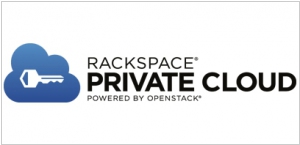
Rackspace is expressing great confidence in the latest release of its private cloud software, built on the OpenStack open-source framework for cloud computing. The company is even offering a guarantee of success for enterprise workload production. Rackspace initially introduced its private cloud in the summer of 2013 and has now enhanced its offering with several notable features. These include a 99.99 percent uptime guarantee for the OpenStack API, increased scalability capable of supporting hundreds of nodes, and DevOps automation services for efficient application lifecycle management. While facing tough competition from industry giants like Amazon Web Services, Google Compute Cloud, and Microsoft Azure, which can provide more competitive pricing, Rackspace aims to leverage the momentum it has built through its private cloud solutions.
2010. Rackspace launched a dating service for apps and their users
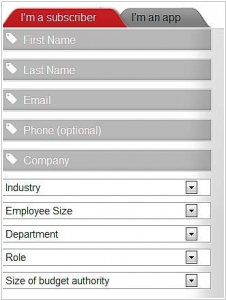
After Amazon had entered the niche of low-cost cloud platforms (where previously Rackspace ruled), Rackspace has to look for the new ways to attract customers and provide value-added services for them. One of these services is AppMatcher - a marketplace, where SaaS-applications and their users can find each other. It's designed in a very original way - it imitates dating site. The potential customer enters basic information about his organization (industry, number of employees, the IT budget, department) and the service finds apps, that may be interesting for him. After registration in the online account he can specify more parameters about his business and app criteria, to narrow the search results. He can also invite co-workers and discuss potentially useful applications with them in the online account. On the other hand, developers add their SaaS apps (for free), filling in the questionnaire list. And it's not necessary that the app was hosted on Rackspace. ***
2010. Rackspace added Windows to its Cloud

Rackspace Cloud, a platform that has attracted numerous customers from Amazon due to its affordable pricing and easy administration, has expanded its range of services by introducing Windows Cloud Server. Previously, only Linux instances could be created on this platform. However, it's worth noting that Rackspace's pricing for Windows instances is not as competitive as Amazon EC2 and Windows Azure. For instance, the minimum configuration for a Windows instance (1 GB of memory, 40 GB storage, and 30 Mb/s bandwidth) costs $0.08 per hour (approximately $58 per month). In comparison, Amazon's small Windows server with 1.7 GB of memory and 140 GB storage (nearly twice the specifications) costs $0.12 per hour. Moreover, Rackspace's Windows servers can only be scaled up, lacking the option to scale down. Interestingly, Rackspace has recently undertaken an exciting initiative to develop an open-source cloud platform called Openstack.
2010. Rackspace wants to be Linux for Cloud Computing
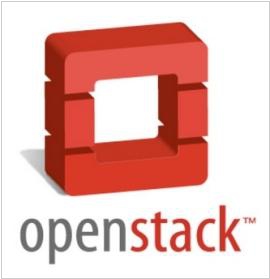
As we recently mentioned, the private clouds have become the necessary intermediate step in moving companies to public cloud platforms. In result we see more and more private cloud solutions on the market. Basically it's a game for IT giants: IBM, Oracle, HP. These vendors use to supply the ready-made cloud solutions: servers + virtualization + operating systems + DBMS ... So companies are forced to buy all this staff combined and can't use the equipment in the existing data centers. It's like buying a computer from Apple with all included. But recently the pure software solutions for creating enterprise clouds appear. Moreover, one of the major cloud providers Rackspace has initiated the project of creating the free open-source platform for building clouds - OpenStack - something similar to Linux in the world of computers. ***

